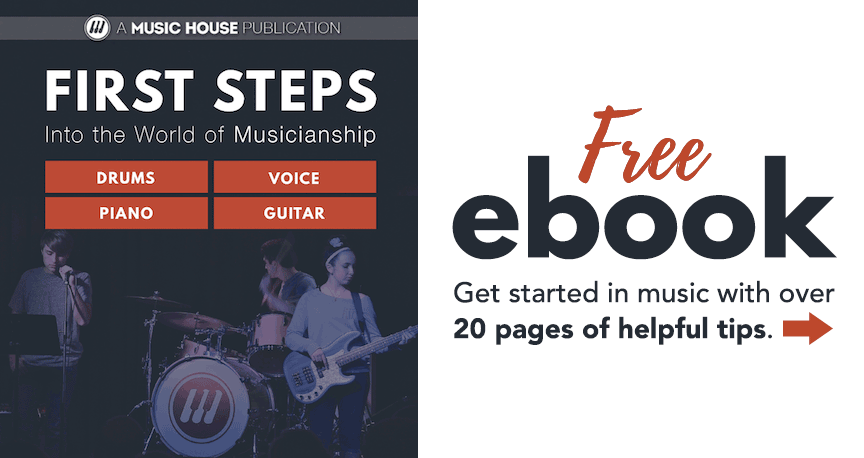Children's Vocal Lessons: What You Should Know and How to Prepare

Finding out that your child has an interest in music is very exciting! This is especially true if you enjoy music or are a musician yourself. The key thing is to get your child started taking lessons right away. The earlier you begin, the better it is for the child’s brain development. Plus, learning a new skill is always easier in the younger years.
The first thing you need to choose is whether they will take music classes online or face-to-face, whichever works best for your schedule. While there are many instruments out there for your child to choose from, if they want to be a singer, vocal lessons are still very important. It is vital to get them started right away as to instill good vocal habits and set a solid musical foundation
Today, our team at Music House wants to take a moment to tell you what you should expect from vocal lessons, how to prepare, and what a few goals should be.
What to Expect
Before heading into class for the first time, here are a few things you and your child can expect:
Take Age Into Consideration
Before you sign up your child for music lessons, it is important to note their age. If you feel as though they are too young to take instrumental music lessons, they might also be too young for vocal lessons. Here at Music House, our core classes for vocal instruction start as early as age nine. We start students yonger than nine on piano.
A Strong Foundation
While vocal lessons might not include a physical instrument like a piano or drum, singers are just valid and important musicians. Vocal training is a discipline like any other. Every vocal instructor varies, but usually, one of the first things that children will learn in their lessons is posture and breath support.
Music Theory
Just like an instrumentalist, learning music theory is vital for singers as well. Having an understanding of harmony, rhythm, scales, notes, tempos, and other compositional elements all have roles to play in becoming a good singer. Of course, the difficulty and depth of these lessons will increase with age, practice, and skill.
Lesson Duration
As a standard practice, lessons usually range about 30 minutes to an hour, depending on the age of the child. For younger children, it might be difficult to hold their attention much longer than that. Our Music Playhouse, which is for four and five year old kids, has class times that are 45 minutes long. Our vocal essentials classes, which are suited for children aged 9-12 years old, run for approximately 50 minutes. Private lessons are 30 minutes.
How to Prepare
How can you help your child feel more prepared for music classes online or face-to-face? We have a few tips:
1.) Remind them it’s okay to be new!
Starting something completely new can be scary or overwhelming, especially for children. But do your best to remind them that it’s okay to be new! In fact, many instructors love the opportunity to give a child their first musical experience. Let them know that just like the teachers are their school, our music teachers want to educate them and help them understand the concepts presented.
2.) Reward good behavior and achieving goals
Talk to your child about how it’s important to be on their best behavior and use their listening ears while attending class. If you need to, create a reward system for good reports or when your child reaches any goals they may have set. This could be something as simple as a trip to get ice cream after class or a new toy or game. Also, be sure to offer praise for reaching milestones as well!
3.) Have fun!
Above all else, remind your child to have fun! They clearly have an interest in singing and learning music. While there are times that learning something new can be frustrating, try to encourage them to have fun even in the face of difficulties. This will help solidify their passion for singing and making music.

Set Goals
When learning music, it is important to set goals. This helps to measure progress and gives the student something to work toward. Goal setting also aids in motivation and keeping the child on task.
Think about it: what is your child’s initial goal in wanting to sign up for music classes online or face-to-face? Are they wanting to take a more active role in the choir at church? What about joining an ensemble at school? Do they want lessons to be able to better compete in talent competitions? If they aren’t sure exactly, that’s okay! There is plenty of time to figure it out along the way.
During lessons, however, the instructor will work to set goals for the student. These might include a few of the following:
-
-
- Good breath support
- Healthy signing posture
- Keep rhythm
- Basic ear training skills
- Exposure to various genres and styles of music
- Working on memorization skills
- Proper diction
- Experience in performing
-
Of course, once again this will vary depending on your child’s age and progress. Just be sure to be encouraging and supportive all along the way!
Practice, Practice, Practice
After classes have begun, remember that practicing at home is very important. In fact, we recommend practicing at least 20 minutes a day. This will help to keep your child’s skills sharp and allow them to achieve their goals faster. While lessons are obviously important, they are not the only piece in the puzzle. Again, this is where a reward system will truly come in handy!
Sign Up With Music House
If your child is ready to begin taking music lessons, then don’t hesitate to get them signed up! Here at Music House, we have an incredibly talented group of instructors who are eager to help students grow, flourish, and become the best musicians they can be. To find out more information, head on over to our website and contact us today!

